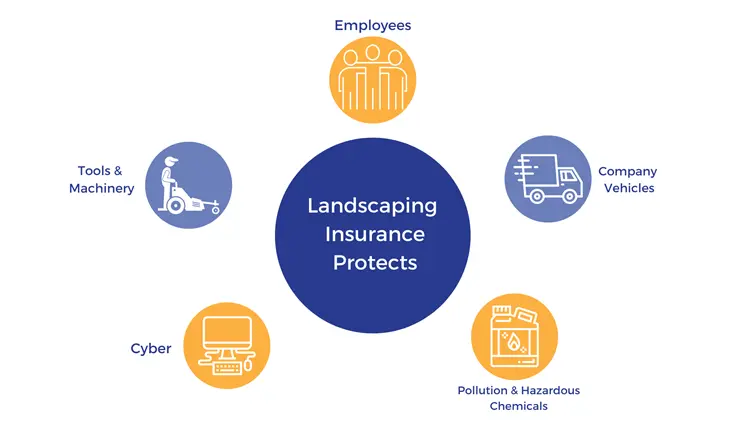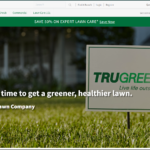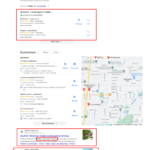Landscaping insurance is an umbrella term. Landscaping insurance is a bundle of commercial insurance policies that protects landscaping businesses from various risks, such as lawsuits, property damage, equipment theft, and pollution liability. Landscaping insurance can cover expenses such as legal fees, repair costs, replacement costs, and awarded damages. Apart from covering damages and protection from claims, it also enables landscapers to bid on contracts. The certificate can be used for satisfying eligibility of commercial contracted, informed landlords.
Landscaping insurance as a whole is not mandatory by law in Canada, but it is highly recommended for landscapers who want to safeguard their financial assets and reputation. Landscaping insurance rates vary depending on the size, scope, and location of the business, but they can start as low as $500 per year for a $1 million coverage.
Please note that the Commercial General Liability Insurance (CGL) – a type of insurance under landscaping insurance might not be required by law. But it is generally required by commercial offerors, landlords and other contractors who subcontract.
Moreover, WSIB (Workplace Safety and Insurance Board) is mandatory for most businesses in Ontario. This means that if you have employees in Ontario, you are required to register with the WSIB and pay premiums. Exception is that if you have fewer than 10 employes you MIGHT be exempt!
Common Scenarios where Insurance can save your landscaping business from liquidation

- Sprinkler damage: Your lawn mower causes flooding on your customer’s lawn due to a damaged sprinkler system line.
- Equipment theft: Your equipment is taken when left overnight on site or in your vehicle.
- Commercial vehicle theft: Your commercial vehicle is taken from the site.
- Trip and fall: Despite warning signs, someone falls in the work area and is injured.
- Storage shed fire: Your equipment shed catches fire and is destroyed.
- Equipment breakdown: Equipment malfunctions during use and needs to be repaired.
- Commercial site vandalism: A commercial site you are working on is damaged by malicious acts.
- Herbicide/pesticide illness: A person or pet becomes ill due to the chemicals you use on a client’s property.
- Fertilizer/chemical damage: The fertilizer or chemicals you use damage your client’s lawn, causing discoloration or other problems.
- Employee injury: An employee is hurt on the job and files a claim against you for damages.
- Employee theft: An employee takes something from one of your clients.
- Natural disaster damage: Your office, equipment workshop, or computer are damaged by a natural disaster such as a flood or windstorm.
- Object damage: Property is damaged by objects thrown by mowers and trimmers, or by tree-trimming operations.
- Flood damage: Property is damaged due to flooding from a sprinkler system malfunction.
- Third party claims/disputes: Your compensation stuck due to dispute between two parties.
List of Insurance Covers a Landscaping Business Should Explore
This list is not to discourage you but to give you a sense of protections that are available to you.
1. Commercial General Liability Insurance (CGL):
This type of insurance covers your business if you are sued for bodily injury, property damage, or advertising injury caused by your work. It is a basic insurance that all landscaping businesses should have.
2. Commercial property/Building insurance:
This type of insurance covers your business’s property against damage from fire, theft, vandalism, and other risks. It is important to have this coverage if you own your own business premises.
3. Professional Liability Insurance (AKA errors and omissions (E&O)):
This type of insurance covers your business if you are sued for mistakes or errors made in the course of your work. This is important for landscaping businesses that provide professional services, such as landscape design or irrigation installation.
4. Commercial Auto Insurance:
This type of insurance covers your business’s vehicles against damage in the event of an accident. It is important to have this coverage if you use vehicles for business purposes, such as to transport equipment or supplies.
5. Pollution liability:
This type of insurance covers your business if you are sued for environmental damage caused by your work. This is important for landscaping businesses that use chemicals or other potentially harmful substances.
6. Tools And Equipment Coverage:
This type of insurance covers your business’s tools and equipment against damage or theft. It is important to have this coverage if you have expensive tools or equipment that are essential to your business.
7. Equipment Breakdown Insurance:
This type of insurance covers your business for the cost of repairing or replacing equipment that breaks down. This is important for landscaping businesses that rely on specialized equipment to do their work.
8. Cyber Insurance:
This type of insurance covers your business for the cost of dealing with a cyberattack, such as a data breach or ransomware attack. This is becoming increasingly important as businesses become more reliant on technology.
9. Disability insurance:
This type of insurance provides income replacement if you are unable to work due to illness or injury. This is important for landscaping businesses that rely on the owner or key employees.
10. Life insurance:
This type of insurance provides financial protection for your family if you die. This is important for landscaping businesses that want to make sure their families are taken care of if something happens to the owner or key employees.
11. Workers’ compensation insurance:
This type of insurance covers the cost of medical expenses and lost wages for employees who are injured on the job. It is mandatory for all businesses in Canada.
12. Installation floater:
This type of insurance covers the cost of repairing or replacing property that is damaged during the installation of new equipment or systems. This is important for landscaping businesses that do a lot of installation work.
13. Legal Expense Insurance:
This type of insurance covers the cost of legal fees if you are sued. This is important for landscaping businesses that may be exposed to legal liability.
14. Group Health Benefits:
This type of insurance provides health insurance coverage for employees. This is important for landscaping businesses that want to attract and retain good employees. Offering group health benefits shows that you care about your employees and their well-being. This can make your business more attractive to potential employees and can also help to improve employee morale and productivity. It can help employees save money on their healthcare costs. This can be a major factor in attracting and retaining good employees, especially in today’s competitive job market.
Landscaping Insurance Pricing Estimates
The prices shown below are only estimates. The actual pricing depends on a lot of factors mentioned below this pricing section. It is better to approach your agent/advisor for more accurate estimates depending on your business.
- Commercial General Liability Insurance (CGL): $45-530 per year
- Commercial property/Building insurance: $1,500-3,000 per year
- Professional Liability Insurance (AKA errors and omissions (E&O)): $100-300 per year
- Commercial Auto Insurance: $150-1,810 per year
- Pollution liability: $100-300 per year
- Tools And Equipment Coverage: $100-300 per year
- Equipment Breakdown Insurance: $100-300 per year
- Cyber Insurance: $100-300 per year
- Disability insurance: $100-300 per year
- Life insurance: $100-300 per year
- Workers’ compensation insurance: $2,770-5,540 per year
- Installation floater: $100-300 per year
- Legal Expense Insurance: $100-300 per year
- Group Health Benefits: $1,500-3,000 per year

💡 A small company – less than 3 people lawn care business might pay an average of $2,000 for $2 million coverage in a year.
General liability insurance would cost around $500 and Business property coverage would cost $100. If you are opting for worker’s compensation, it might set you back for around $5- $6 for every $100 you pay. Apart from this, you might have equipment/installation floaters along with a professional liability cover.
💡Insurance companies also stipulate a per occurrence limit and an aggregate limit. Your aggregate limit might be 2 Mil but you would only be able to claim your occurrence limit (1 million or less) in a single claim.
Your price depends on these factors:
- The cost of insurance can vary depending on where you are located. For example, businesses in areas with a high risk of natural disasters may pay higher premiums.
- The types of services you offer. For example, businesses that offer tree removal or snow removal may pay higher premiums than businesses that only offer lawn care.
- The number of employees you have: Businesses with more employees typically pay higher premiums than businesses with fewer employees.
- The type of projects you work on: For example, businesses that work on commercial projects may pay higher premiums than businesses that only work on residential projects.
- The annual projected revenue of your business: Businesses with higher projected revenue typically pay higher premiums than businesses with lower projected revenue.
- If you have a history of claims, your premiums will be higher. This is because insurance companies view businesses with a history of claims as being more likely to file future claims.
- The size of your business. Businesses that are larger typically pay higher premiums than businesses that are smaller.
- The value of your assets. Businesses with more assets typically pay higher premiums than businesses with fewer assets.
- The amount of experience you have in the industry can also affect the cost of insurance. Businesses with more experience typically pay lower premiums than businesses with less experience.
- The amount of payroll you expect to pay. Businesses with higher payroll estimates typically pay higher premiums than businesses with lower payroll estimates.
- If you use pesticides in your work, your premiums may be higher. This is because pesticides can be hazardous and can lead to lawsuits.
- If you offer additional services, such as snow removal or tree removal, your premiums may be higher.
By understanding the factors that affect the price of landscaping insurance, you can help ensure that you are getting the best possible coverage for your business.
Landscaping Insurance benefits
You get protection from:
- Harsh weather: Insurance can protect you from financial losses caused by storms, floods, and other weather events.
- Equipment theft & damage: Insurance can help you replace or repair equipment that is stolen or damaged.
- Workplace accident: Insurance can help cover the cost of medical expenses and lost wages if an employee is injured on the job.
- Fire protection: Insurance can help cover the cost of repairing or replacing property that is damaged by fire.
- Lawsuits: Insurance can help protect you from financial losses if you are sued.
- Third party bodily injury: Insurance can help cover the cost of medical expenses and lost wages if a third party is injured as a result of your work.
- Unappreciated employees: Insurance can help cover the cost of legal fees if an employee files a wrongful termination lawsuit against you.
- Disasters: Insurance can help cover the cost of repairing or replacing property that is damaged by a disaster, such as a hurricane or tornado.
- Advertising injury: Insurance can help cover the cost of legal fees if you are sued for libel, slander, or other advertising-related claims.
- Any other third-party claims: Insurance can help cover the cost of legal fees and damages if you are sued for any other type of third-party claim.
Why Need one?
🧪 Use of chemicals:
Many landscaping tasks involve the use of chemicals, such as pesticides, herbicides, and fertilizers. These chemicals can be hazardous if not handled properly, and they can also pose a risk to the environment. Landscape insurance can help protect you from liability claims if someone is injured or if the environment is damaged as a result of your use of chemicals.
🏭 Heavy machinery:
Landscapers often use heavy machinery, such as lawnmowers, tractors, and excavators. These machines can be dangerous if not operated properly, and they can cause serious injury or property damage if they are involved in an accident. Landscape insurance can help protect you from liability claims if someone is injured or if property is damaged as a result of your use of heavy machinery.
⛺ Working outdoors:
Landscapers often work outdoors, which exposes them to a variety of risks, such as falls, slips, and accidents involving power tools. Landscape insurance can help protect you from liability claims if someone is injured on your property while you are working.
🌳 Heavy trees:
Landscapers often work with heavy trees, which can be dangerous if not handled properly. If a tree falls and injures someone or damages property, landscape insurance can help protect you from liability claims.
💼👩🏽💻🤝 Protects company, employees, clients:
Landscape insurance can help protect your business, your employees, and your clients from financial losses. For example, if a client’s property is damaged during a landscaping project, landscape insurance can help cover the cost of repairs. Or, if an employee is injured on the job, landscape insurance can help cover the cost of medical expenses and lost wages.
💸 Financial disputes:
Landscape insurance can help protect you from financial disputes with clients or suppliers. For example, if a client refuses to pay for a landscaping project, landscape insurance can help cover the cost of the project. Or, if a supplier fails to deliver materials on time, landscape insurance can help cover the cost of lost profits.
😳Unexpected losses:
Landscape insurance can help protect you from unexpected losses, such as theft, vandalism, or natural disasters. For example, if your equipment is stolen, landscape insurance can help cover the cost of replacing it. Or, if your property is damaged by a storm, landscape insurance can help cover the cost of repairs.
🫶 Win contracts:
Clients and general contractors often ask to see proof of insurance before they will hire a landscaping contractor. Having landscaping insurance can give you an edge in the competitive bidding process.
🚧Construction bond:
A construction bond is a surety bond that is required for some landscaping projects. This bond protects the client if the contractor fails to complete the project or if the project is not completed to the agreed-upon standards. Landscape insurance can help you obtain a construction bond.
What happens when you do not have an Landscaping Insurance?
Damages:
If you are sued for damages caused by your landscaping work, you could be personally liable for the costs of repairs or even for medical expenses if someone is injured. Without landscaping insurance, you could be forced to pay these costs out of your own pocket.
Legal fees:
If you are sued, you will likely need to hire an attorney to defend you. The cost of legal fees can be expensive, and without landscaping insurance, you could be responsible for paying them all yourself.
Medical bills:
If someone is injured as a result of your landscaping work, they may be able to sue you for medical expenses. These expenses can be significant, and without landscaping insurance, you could be responsible for paying them all yourself.
Loss of project:
If a client is unhappy with your work and they sue you, they may also refuse to pay for the project. This could mean that you would not be able to collect any money for your work, and you could also be responsible for paying the client’s legal fees.
Reputation:
If you are sued for damages or if someone is injured as a result of your landscaping work, your reputation could be damaged. This could make it difficult to win new clients in the future.
Time:
Dealing with a lawsuit can be time-consuming and stressful. This could take away from the time you could be spending running your business or working on landscaping projects.
Working capital:
If you are sued or if you have to pay out medical expenses, you could lose working capital. This could make it difficult to pay your employees, buy supplies, or cover other business expenses.
Financial disputes:
If you have a financial dispute with a client or supplier, without landscaping insurance, you could be personally liable for the costs of the dispute. This could include legal fees, court costs, and even damages.
In short, not having landscaping insurance can expose you to a significant amount of financial risk. If you are a landscape contractor, snow removal contractor, or lawn care professional, it is important to have landscaping insurance to protect yourself and your business.
Who needs it?
This is not an exclusive list.
- Tree trimmers
- Landscape designers
- Land irrigation contractors
- Landscape architects
- Landscapers
- Arborist (tree surgeon)
- Groundskeepers
- Field technicians
- Well drilling contractors
- Tree removal pros
Things you should know if you are buying insurance for your landscaping business
Certificate of Insurance (COI)
A COI (Certificate of Insurance) is a document issued by an insurance company that verifies the existence of an insurance policy. It summarizes the key aspects and conditions of the policy, such as the type of coverage, the policy limits, and the effective dates.
COIs are often required by businesses and organizations when they are contracting with other businesses or organizations. This is to ensure that the contracting parties are protected in the event of a loss.
Workplace Safety and Insurance Board or WSIB
The Workplace Safety and Insurance Board (WSIB) is a government agency in Ontario that provides workers’ compensation benefits to employees who are injured or become ill as a result of their work. The WSIB also provides health and safety information to employers and workers. Note that WSIB covers workers’ compensation, not liability. WSIB premiums are based on payroll.
Business Owners Policy (or BOP)
BOPs are typically sold by insurance companies as a package policy, which means that they cover multiple types of risk in a single policy. This can save businesses money on their insurance premiums, as they do not need to purchase separate policies for each type of risk.
Having a complete inventory (detailed) at all times.
If your equipment is damaged or stolen, a detailed inventory will make it easier for your insurance company to determine the value of your loss and reimburse you accordingly. Additionally, It can help you identify gaps in your coverage and account depreciation. Include the make, model, and serial number of each piece of equipment to make the claims process easier.
Insurance agent vs. an Insurance broker
An insurance agent and an insurance broker are both professionals who can help you find and purchase insurance. However, there are some key differences between the two.
An insurance agent works for an insurance company. They are responsible for selling the company’s products and services to potential customers. Agents typically have a deep understanding of the company’s products and services, and they can help you find the right coverage for your needs.
An insurance broker, on the other hand, does not work for any particular insurance company. They are independent contractors who represent a variety of insurance companies. Brokers have access to a wider range of products and services than agents, and they can help you find the best coverage for your needs from multiple companies.
Important Facts to know before purchasing any insurance:
- Only full-time employees are covered by your landscaping insurance policy up to its specified limit. It’s recommended you only hire part-time subcontractors who have insurance.
- Commercial auto insurance will not cover the theft of tools or equipment from that personal vehicle. Personal vehicles used for work are not covered for theft, fire of vehicles during commercial use.
- If you operate your landscaping business from home and store equipment in a garage or shed, then home insurance will not protect you in the event of a theft or loss. You may need commercial property insurance.
- Even if you damage your client’s property accidentally, they may wish to sue you rather than go through their own insurance.
- Claims might be subject to depreciation.
- Landscapers need at least a commercial general liability insurance before going into business.
- List all the lawn mowing and landscaping services you offer. Insurers typically classify mowing, blowing, weeding and edging as ‘basic lawn care’. So if that’s all your company offers, that’s how you’ll be classified for insurance purposes. But if you also offer services like planting, mulching, irrigation and trimming of trees from ground level, that comes under ‘landscaping’. While snow removal, masonry, excavation and land grading all come under ‘landscaping’, insurers rate them separately.
- General Liability Insurance does not cover worker’s compensation insurance/pay.
- Expenses associated with re-doing the project (time, manpower, materials) are typically beyond the scope of your general liability coverage.
- Landscaping insurance cost more than other contractor insurance.
- Injury claims are more common in landscaping contracts than other businesses.
- You should ensure there’s a “hold harmless” agreement that benefits your business.
- You can always file a complaint with the Govt if you have an issue with your insurance provider.
Characteristics/what to look for/how to choose
Prompt claim resolution: This is one of the most important factors to consider when choosing an insurance deal. You want to make sure that if you ever have to file a claim, it will be resolved quickly and fairly.
24/7 claims resolution: This is especially important for contractors who work long hours or who may be working on projects that require them to be on-call. You want to be able to file a claim at any time, day or night, and know that it will be handled promptly.
Flexible payment venues: This is another important factor, especially for contractors who may have fluctuating income. You want to be able to pay your premiums in a way that is convenient for you, whether that is monthly, quarterly, or annually.
Flexibility to add addons and upgrade/downgrade: This is a great feature to have if your business is growing or if your needs change over time. You want to be able to add or remove coverage as needed, without having to start a new policy.
Legal assistance, risk management assistance: This is a valuable service that can help you to protect your business from legal liability and to manage risks. If you have any questions or concerns, you will have access to experts who can help you.
Personalized to your company: This is a great way to ensure that you are getting the coverage that you need. Your insurance company will work with you to understand your business and your risks, and they will customize a policy that is right for you.
Transparency every step of the way: This is important for peace of mind. You want to be able to understand your policy and your coverage, and you want to know what to expect if you ever have to file a claim.
By considering these factors, you can be sure to find an insurance deal that is right for your business and your needs.
Additional tips
- Get quotes from multiple companies: This will help you to compare coverage and prices.
- Read the fine print: Make sure you understand the terms of your policy before you sign it.
- Ask questions: If you have any questions, be sure to ask your insurance agent.
- Review your policy regularly: Your needs may change over time, so it is important to review your policy regularly to make sure it still meets your needs.
Conclusion
Landscaping insurance is a vital protection for any landscaping business or contractor. It can cover you from various risks. Don’t let your hard work go to waste because of an unfortunate incident. Get insured today and enjoy peace of mind while you grow your landscaping business.









